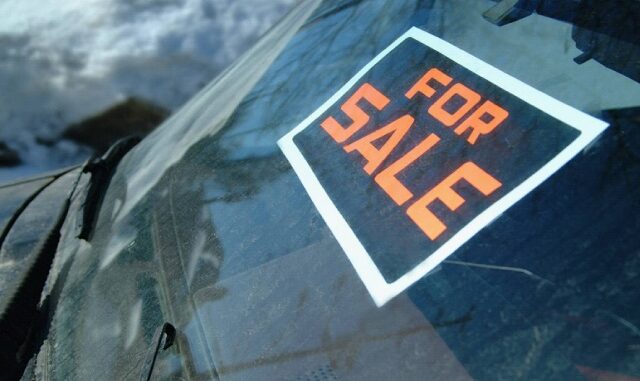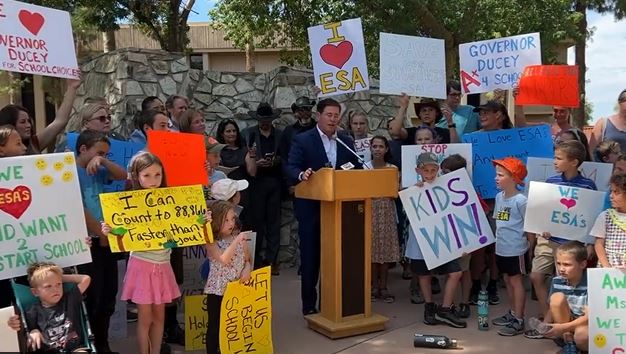
by Terri Jo Neff | Oct 1, 2022 | News
By Terri Jo Neff |
Last year’s fiery death of two adults and seven children in a head-on collision involving a drunk driver in California has prompted the National Transportation Safety Board (NTSB) to recommend all new vehicles in the U.S. be equipped with a device capable of preventing or limiting a vehicle’s operation if driver impairment by alcohol is detected.
The NTSB recommendation calls on the National Highway Transportation Safety Administration (NHTSA) to adopt new manufacturing requirements to include passive vehicle-integrated alcohol impairment detection systems, advanced driver monitoring systems, or a combination of both in an effort to prevent impaired drivers from getting on the road.
“Vehicle-integrated passive alcohol detection technologies that prevent or limit impaired drivers from operating their vehicles have significant lifesaving potential; however, development of the technologies has been slow, and additional action is needed to accelerate progress in implementing these technologies,” according to the NTSB report of the deadly 2021 California crash.
That report released in September argues such a device would have likely kept a heavily intoxicated driver off a highway the night of Jan. 1, 2021. The unidentified driver lost control of his SUV at speeds between 88 and 98 mph and crossed the centerline where the SUV crashed head-on with a pickup truck.
The pickup truck was occupied by an adult driver and seven children ages 6 to 15. The truck immediately caught on fire and was fully engulfed before other drivers could extricate the occupants.
The SUV driver and all eight people in the truck died at the scene.
But NTSB chairwoman Jennifer Homendy says the “heartbreaking crash” could have been prevented with readily available technology, “just as it can prevent the tens of thousands of fatalities from impaired-driving and speeding-related crashes we see in the U.S. annually.”
The official findings in the California incident also included a renewed call for the NHTSA to incentivize passenger vehicle manufacturers and consumers to adopt Intelligent Speed Assistance (ISA) systems which alert a driver if a vehicle travels above the speed limit. Some newer ISA products can even automatically restrict the vehicle from traveling above a predetermined speed.
However, the five-member NTSB is not waiting for the NHTSA to adopt new manufacturing standards, which could take two or three years.
The agency has publicly called out the Alliance for Automotive Innovation—whose members manufacture nearly all new cars and light trucks sold in the United States—to encourage the development and deployment of technology to combat alcohol-impaired driving.
Data recently released by the NHTSA shows roughly one in three traffic fatalities in the U.S. resulted from crashes involving alcohol-impaired drivers. And the number of such impaired driver crashes is increasing.
Arizona is no different, according to the Arizona Department of Transportation, which shows the number of traffic fatalities in the state from all causes rose last year to 1,180, the highest level in 15 years. Of those, 243 deaths were alcohol related, up from six percent from 2020.
The full 2021 Arizona Motor Vehicle Crash Facts report is available here.
The NTSB is an independent federal agency charged by Congress to investigate a variety of transportation accidents, including aircrafts, railroads, boats, and pipelines. It also has authority to investigate “significant accidents” which occur on highways. Another responsibility of the NTSB is to issue safety recommendations aimed at preventing future accidents.
Any of those recommendations concerning highways are made to the National Highway Transportation Safety Administration (NHTSA) within the U.S. Department of Transportation. Among its authorities is the setting of and enforcement of safety standards.

by Corinne Murdock | Sep 30, 2022 | News
By Corinne Murdock |
On Monday, Arizona Senate President Karen Fann appointed Dr. Theodore Cooke, Central Arizona Project (CAP) general manager, to the Water Infrastructure Finance Authority (WIFA) Board.
In June, Governor Doug Ducey increased WIFA’s responsibility to manage a $1.2 billion appropriation to ensure the state has an adequate water supply over the next century. The increased authority came through SB1740, introduced by State Senator Sine Kerr (R-Buckeye) and backed by a bipartisan majority of all but two votes in the legislature. Current members of the WIFA Board are Misael Cabrera, Keith Watkins, Paul Gardner, Alan Baker, Kevin Rogers, Lynne Smith, Briton Baxter, Fernando Shipley, and Ray Montoya.
The WIFA appointment comes as Arizona continues to grapple with its declining water supply.
Last year, the federal government cut back on Arizona’s largest renewable water supply, the Colorado River, when it reclassified the river to Tier One drought status. Then last month, the Interior Department announced that it would again cut back Arizona’s water allocation for next year.
In response, Cooke and Arizona Department of Water Resources (ADWR) stated in a joint press release that Arizona isn’t responsible for it’s water supply struggles. Rather, the two authorities indicated that other states were to blame. CAP and ADWR outlined how Arizona did its part to conserve the Colorado River system supply, such as leaving 800,000 acre-feet in Lake Mead alone this year, in addition to 37 feet of increased elevation contributed to that lake since 2014.
“It is unacceptable for Arizona to continue to carry a disproportionate burden of reductions for the benefit of others who have not contributed,” stated the CAP and ADWR. “Discussions among the Basin States and the United States have only led to a framework relying entirely on short-term, voluntary contributions for 2023 that fall far short of the water volumes needed to protect the system.”
State officials have been exploring options to reverse Arizona’s declining water supply, such as adopting Israel’s desalination techniques.
Cooke will retire as CAP general manager in November. As a WIFA Board member, he will oversee loan and grant distributions for importing, conserving, and reusing water, as well as new technologies to improve the state’s water situation.
Fann asserted that Cooke was the best qualified candidate to improve the state’s water security at the most affordable cost to taxpayers.
“We closely examined every applicant and determined Dr. Cooke’s wealth of knowledge and incredible industry insight make him a highly qualified person for this position,” said Fann. “He understands the very different needs of municipalities, the agriculture industry, home builders and economic developers, as well as conservation.”
Cooke expressed gratitude for the appointment.
“I will do my very best to meet the high expectations for this role in the governance of Arizona’s fiscal, infrastructure, and water resources,” said Cooke.
Corinne Murdock is a reporter for AZ Free News. Follow her latest on Twitter, or email tips to corinne@azfreenews.com.

by Corinne Murdock | Sep 29, 2022 | News
By Corinne Murdock |
Maricopa County Attorney Rachel Mitchell announced on Tuesday that her office wouldn’t prosecute women who obtain an abortion, citing the ongoing legal confusion over state law on abortion.
Mitchell disclosed that her office hasn’t received any case submittals relating to abortion. However, if any submittals were to come through, Mitchell promised that she would seek court guidance before taking any action.
“I know this is a highly emotionally-charged subject, and I want the community to know: I will not prosecute women for having abortions,” said Mitchell. “And no statute even suggests that a woman will ever be prosecuted for her decision.”
Mitchell added that she wouldn’t further victimize rape, incest, or molestation victims by prosecuting them. She implied that her detractors were spreading lies in order to sow fear for political gain. That final comment was likely directed at her opponent, Democratic candidate Julie Gunnigle.
In response, Gunnigle accused Mitchell of “flip-flop[ping]” on her position on prosecuting abortion cases. Gunnigle contended that Mitchell’s promise to enforce the law was contradictory.
Planned Parenthood endorses Gunnigle. Earlier this week, the abortion organization petitioned the Pima County Superior Court to implement a stay on its ruling last week, which lifted the 1973 injunction on Arizona’s total abortion ban.
At present, two abortion laws are in effect: one limiting abortions to 15 weeks, and another banning abortions entirely save in cases where the mother’s life is at stake.
While the state of abortion law is in legal limbo in Arizona, local governments are determining their next moves.
Tucson led the way, preceding the Supreme Court (SCOTUS) ruling by passing a resolution in early June that effectively established the city as a safe haven for abortions. The resolution allowed the police to not arrest anyone who violated abortion law.
AZ Free News reached out to the Phoenix City Council and the Phoenix mayor’s office concerning their promise last month to pass a resolution prohibiting the use of city resources to enforce abortion laws. We are awaiting a response.
Corinne Murdock is a reporter for AZ Free News. Follow her latest on Twitter, or email tips to corinne@azfreenews.com.

by Terri Jo Neff | Sep 29, 2022 | News
By Terri Jo Neff |
The Arizona Department of Transportation is hoping to protect consumers from having a bad time buying a used vehicles.
An increased demand for certified pre-owned or used vehicles has been seen in recent months in response to manufacturer supply chain interruptions and the increased cost of new vehicles coming off the assembly line. Add that to tightened underwriting rules for new vehicle loans, and the used car market has become the next best option for many Arizonans.
But purchasing a used vehicle comes with its own risks, whether buying from a private party or a car dealer. Which is why ADOT urges consumers to use care in such transactions, and to “walk away” if anything seems off with the car, the deal, or the seller.
Most used cars sold in Arizona come with only an implied warranty of merchantability lasting 15 days or 500 miles, whichever comes first. Therefore, ADOT recommends consumers not buy a used vehicle until a trusted mechanic has performed an inspection.
In addition to checking the vehicle’s general mechanical condition, the inspection should look at whether the odometer was tampered with and whether the vehicle has any water or collision damage which was not reported or properly repaired. Such damage could lead to future malfunctions of the electrical system or engine.
A prospective buyer should also obtain a Motor Vehicle Record to ensure the vehicle’s title is not encumbered by a lien. When a vehicle title has a lien, it cannot be transferred to a new owner without a release first being recorded.
“Unfortunately, there are unscrupulous sellers that go to an auto-title / loan business and receive a loan against their vehicle one day before they sell it. The auto-title / loan business applies a lien to that particular vehicle so it can’t be sold until the loan is paid,” according to ADOT.
A Motor Vehicle Record is available at MVD offices and authorized MVD third party office. Private companies such as CarFax and Experian Automotive also sell similar records, often referred to as a vehicle history report.
A third way to avoid fraud is to ask the vehicle seller to be present with the buyer to transfer the title at an MVD or Third Party office where the payment can be exchanged.
ADOT even has advice for anyone selling a used vehicle, as seller’s too can be targeted by scammers. First, make sure to obtain the buyer’s name and address. Second, make sure to remove the license plate and any handicap placard before the new owner drives away.
It is also critical to complete an ADOT-MVD “sold notice” and submit it to ADOT. This step ensures the seller is not held responsible for any tickets or liability connected with the vehicle after the sale is reported.
Additional consumer information concerning auto purchases is available from the Arizona Attorney General’s Office here.

by Corinne Murdock | Sep 28, 2022 | Education, News
By Corinne Murdock |
On Wednesday, Secretary of State Katie Hobbs chose to stall on the invalidation of a ballot initiative attempting to kill school choice, despite it not having the required number of signatures.
School choice advocates gathered outside of the State Capitol on Wednesday to protest Hobbs’ inaction. Hobbs told frustrated parents that her office would wait out the entire 20-day period offered by state law to verify the Save Our Schools Arizona (SOSAZ) ballot initiative signatures.
Governor Doug Ducey spoke at the rally, telling Hobbs to expedite her signature verification. He also directed Arizona Department of Education (ADE) Superintendent Kathy Hoffman to take charge and free the universal school choice funds.
“Arizona is going to be a state that funds students, not systems,” said Ducey.
One Empowerment Scholarship Account (ESA) Program mother, Christine Accurso, pleaded with the media to question Hobbs’ choice. Accurso led “Decline to Sign,” the countermovement to SOSAZ’s ballot initiative.
“Help us parents of Arizona. Ask Katie Hobbs why they won’t release this,” said Accurso.
Accurso added that if a group of four moms was able to verify the signature number total in a matter of days, it shouldn’t take the secretary of state’s office nearly a month to do the same.
According to earlier reporting from this week, pro-ESA Program parents, organizations such as the American Federation for Children, and various reporters reviewed the SOSAZ signature sheets and found them far short of the claimed totals. However, Hobbs and her office took SOSAZ’s signature total claim at their word.
“Conservative Circus” radio host James Harris also spoke at the rally. He declared that Hobbs’ Republican gubernatorial opponent, Kari Lake, wouldn’t stand in the way of school choice funds for parents the way he said that Hobbs did this week.
“We don’t need more obstacles. We need liberty and we need freedom,” said Harris.
AZ Free News reached out to Hobbs’ office on Tuesday for clarification about whether their decision to accept SOSAZ’s word for their petition signature count without verification was protocol. They haven’t responded.
We also reached out to SOSAZ Director Beth Lewis; she didn’t respond to our questions, either.
Senate President Karen Fann (R-Prescott) sent a letter to Hobbs on Wednesday, informing the secretary of state that anything less than an immediate rejection of the SOSAZ ballot initiative would make Hobbs complicit in misreporting and interfering with the law.
“As our country enters into a recession, we know that every dollar is valuable to lives and livelihoods,” said Fann.
While awaiting response from Hobbs’ office, AZ Free News posed the same question to former Secretary of State Ken Bennett. Though he said he was shocked by Hobbs’ handling of the ballot initiative, he said that Hobbs’ actions weren’t in violation of any laws. Bennett explained that Hobbs’ handling of this recent initiative didn’t align with the precedent of her predecessors, including his administration.
“We just felt the integrity of the whole process was worth at least a verification of the number of sheets and the purported number of signatures on those sheets when they first turned them in when I was there,” said Bennett. “Each secretary can decide how they want to do it, but my administration felt that we at least owed the public the fact that we checked the signatures per sheet. At least we would add the total sheets and total signatures up, so we weren’t getting somebody a false receipt of what we had received from them.”
Corinne Murdock is a reporter for AZ Free News. Follow her latest on Twitter, or email tips to corinne@azfreenews.com.

by Corinne Murdock | Sep 28, 2022 | News
By Corinne Murdock |
On Monday, Arizona Attorney General Mark Brnovich petitioned Congress to reject legislation reducing states’ land-use and energy rights in order to federalize the energy grid.
The letter warned that the legislation would empower private companies to wield the authority of eminent domain against state land, enable the Federal Energy Regulatory Commission (FERC) to construct whenever and wherever it desires regardless of state input, and authorize private companies to pass on the construction costs of new facilities from one state to another.
“These provisions eviscerate state sovereign authority, commandeer companies to carry out the will of a three-vote majority of FERC Commissioners, undermine the power of each citizen’s vote to decide policies at the state level, and inevitably force the citizens of our states to subsidize the costs of expensive and unreliable energy policy preferences of California and New York,” stated the letter.
READ: THE ENERGY INDEPENDENCE AND SECURITY ACT OF 2022
The letter also noted that Congress was rushing the legislation through without the transparency of committee hearings, markups, or debate.
Brnovich warned in a press release that the proposed legislation, the Energy Independence and Security Act of 2022, would burden Arizonans with other states’ problems.
“The Act is unfair and takes power from states to decide policies for their own people,” said Brnovich. “Arizona and Louisiana should not be forced to pay for California and New York’s expensive energy preferences.”
Senate Majority Leader Chuck Schumer (D-NY) and Senator Joe Manchin (D-WV) introduced the legislation under the promise of creating energy independence, citing the ongoing Russian war abroad.
Some renewable energy analysts say that the legislation would help fast-track the country’s adoption of “clean” energy.
Brnovich joined a coalition of 18 states led by Louisiana Attorney General Jeff Landry to request the rejection of the legislation: Alabama, Alaska, Arkansas, Georgia, Indiana, Kansas, Kentucky, Mississippi, Missouri, Montana, Nebraska, South Carolina, Tennessee, Texas, Utah, and Virginia.
Corinne Murdock is a reporter for AZ Free News. Follow her latest on Twitter, or email tips to corinne@azfreenews.com.






